We are a Teaching for Mastery School
Maths Subject Leaders-Mrs Cookson and Mrs Horn.
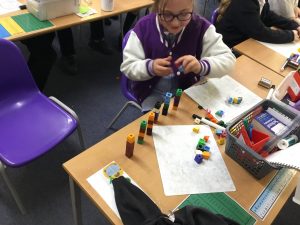
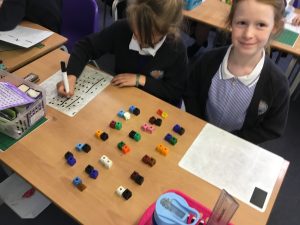
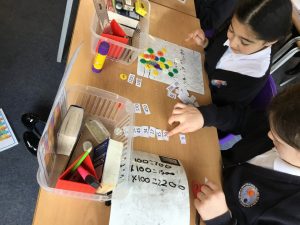
Maths Curriculum Intent:
Our maths curriculum is designed with the schools’ vision and ethos at the centre. We aim through our bespoke Mathematics curriculum that our children will be ‘achieving excellence in the light of God.’ Through an environment of Christian love and support, we aim that our children will become confident and independent mathematicians. Using our curriculum driver of Growth Mindset, mistakes in maths are celebrated and used as valuable learning points. By teaching maths with a mastery approach, our children will have deep and broad understanding so because of this be willing to take risks and make informed decisions about their choice of calculation. Staff will be role models of communication in mathematics, teaching the best way to explore and share reasoning. Building on our children’s solid cultural capital, maths teaching will be purposeful, not driven by processes but by meaningful and efficient calculating. By rooting learning in mathematics it is these principles that will allow our children to shine.
Maths Curriculum Implementation:
Key Documentation and links: Note that as we are currently in the mastery embedding stage of our curriculum, our policies are working documents and are constantly being updated as our curriculum develops.
https://www.ncetm.org.uk/in-the-classroom/early-years/
Mathematics will be taught using the long term planning from Maths No Problem as a basis and teachers will use the small steps in learning from here to support the teaching for mastery approach. We also supplement this using the Mastery Development Spines from the National Centre for the Excellence in Teaching of Mathematics or NCETM. Due to the outbreak of Covid 19, teachers are aware that children may have gaps in their learning and will use the new guidance from the Department for Education Ready to Progress Criteria and NCETM Curriculum Prioritisation documents to address this. As we are a Teaching for Mastery School, we also use other resources to support of teaching and allow children to see learning in a variety of ways. It is this that gives the children breadth and depth of understanding. We use Deepening Understanding, NCETM Mastery Assessment Documentation, alongside some resources from White Rose Maths. When we are delving deeper into learning, we also use Nrich to provide a more investigative approach.
Aims of the 2014 National Curriculum:
- Fluency in the fundamentals of mathematics
- Having a deep conceptual understanding of their learning.
- Reasoning mathematically, following a line of inquiry
- Solve problems applying their mathematical skill
What does a mastery approach look like?
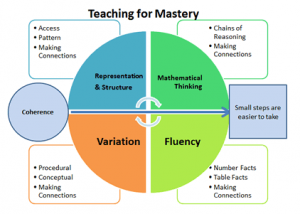
We are a member of a Northwest Abacus Mastery Sustaining group for this academic year 2022/2023. We work with other local mastery sustaining school to access the latest training and resources.
Our current focus for 2022/23 (One TRG been held so far in October 2022)
- How do we continue to develop mastery principles across school?
Topics covered on our mastery journey so far have been:
- Careful anchor task setting – a worded problem to solve that the lesson is based around. Careful setting and questioning helps bring all children into the discussion at their level, increasing confidence and building mathematical talk.
- Patterns and connections – Connections underpin every area of mastery. If children are encouraged to make connections and apply patterns, they will have a broader and deeper understanding. The use of because is key in our lessons – children can explain their thinking clearly by connecting ideas.
- Representation – How we represent mathematical thinking to the children is key. We need to have consistent representations throughout school in order to unlock the understanding of maths and give children a place to hand their reasoning. If children can have a mental repertoire of practical equipment in their minds, they can tackle challenging problems and explain their thinking visually.
Research has shown that splitting the class into groups of learning based on ability causes widens the gap in achievement. Teaching for mastery focuses on the achievement of all pupils with the class working together at broadly the same pace. Some children will work within age related expectations but need more visual representations of questions, other children will move on to a deeper understanding in their learning.
Practical equipment, used at every stage of learning and regardless of ability, plays a vital role in mathematics in our school. Children who see questions practically and with visual representations have a deeper conceptual understanding and this unlocks the mathematics. Each question will be varied slightly each time, making the children think that little bit more and apply their skill in a different way. Because each question is progressive, next steps in learning are automatically built in through careful question selection. Children are ready for challenge, knowing that each question will stretch their thinking.
During teaching time, children will work in mixed ability groups and share thinking with a partner. Teachers will ask carefully thought-out questions and children will have time to work and feedback. Emphasis will be placed how children have arrived at the answer or how many ways they could arrive at the answer. In this way, children will demonstrate a clear and deep understanding of the concept they have learnt. They will also learn to communicate their thinking in maths clearly and work systematically to arrive at all possibilities.
From years 1 -6 our children are taught in mixed age classes. To focus the lesson on the curriculum objectives for each individual year group. This academic year, Reception and Year 1 are taught separately, as their curriculums are different. One year group will receive their input time whilst the other year group works independently and vice versa. We believe that this allows the teacher to focus on specific learning for that particular year group and learning expectations for all years are clear. Year 2 are taught as a year group on their own. In Years 3-4 and Years 5-6, the children are taught together and the younger year group starts their independent activity first in order for the teacher to further the learning for the older year group.
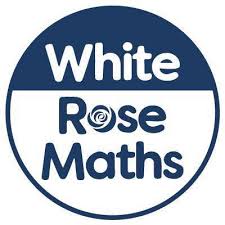
EYFS are using the White Rose Reception scheme and the NCETM spines a basis for their curriculum. The teachers in EYFS also plan the maths provision for the nursery class following this guidance. This is consistent throughout school and the practical equipment and representations flow throughout. White Rose and NCETM use Number Blocks as a basis of understanding of number. This is picked up in Year 1 to ensure continuity of transition. We also use Numberland, which allows the children to explore numbers 1 to 10 in depth and links also to areas such as shape and measure. Our staff in EYFS and KS1 have all had access to or are accessing the latest Mastering Number training from NCETM. This builds slowly a real, concrete understanding in the children of numbers. It works slowly but with depth to build knowledge.
Teachers and teaching assistants, circulate effectively during activities to provide immediate feedback to groups of learners or replicate models of calculations on the board at table level. Intervention is conducted as soon as possible that day or as near to the next lesson in order to close gaps quickly.
Children who are working at a greater depth, will have the opportunity again through carefully selected questions to further their thinking. Lessons are not about pace but about deepening understanding. We use the NCETM Mastery with Greater Depth materials and Nrich to support further questioning and challenge.
Pupils with SEND who are working significantly below age-related expectations will be taught using a tailored approach that is right for their specific need.
For all pupils at Hoole St Michael, we believe that we should not put a lid on learning and allow children to maximize their potential. Each lesson, pupils have the opportunity to undertake a deeper learning challenge to stretch their thinking even further.
Daily Fluency Sessions:
Fluency Frenzy!
We aim for our children to be:
Flexible in their thinking.
Efficient in their calculating.
Accurate in their responses.
We believe that our children should have a fluent recall of the mathematical skills that they need to support them though into adult life. With this in mind, we have daily fluency sessions outside of the maths lesson which gives children the opportunity to recall/embed previous learning and hone their skills. Teachers are currently using the Department for Education Ready to Progress guidance, alongside year group objectives to inform planning for these sessions as well as progressions for mental mathematics. Our fluency sessions are based around fluent recall and reasoning. Children are encouraged in these sessions to make those vital connections and relationships between numbers. We know this because… is a key phrase here.
Practical Working:
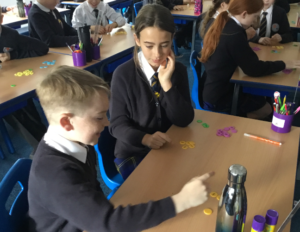
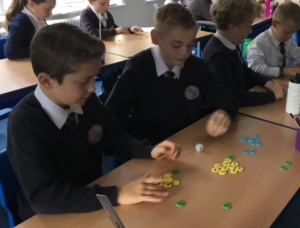
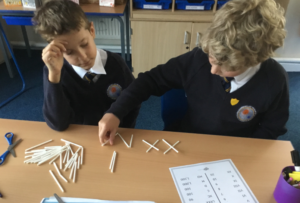
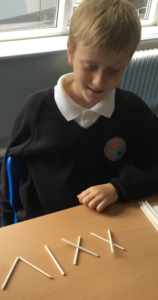
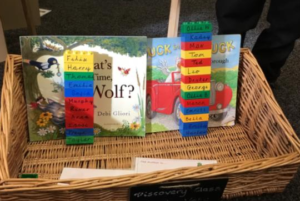
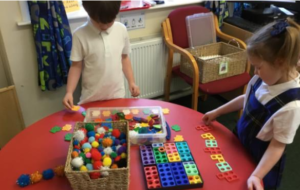
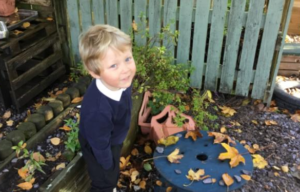
All our lessons are rooted in practical equipment. We believe that this approach unlocks the understanding of the maths. As children grow in confidence, the equipment is replaced with visual representations such as bar models, part part wholes or place value grids. We ensure that these representations are consistent throughout school by using the Ready to Progress Criteria resources from NCETM and the Spines. This consistency gives our children a place to hang their thinking from, encouraging reasoning and unlocking problem solving.
Key Representations:
At Hoole St Michael we have decided on several key representations that we will be using as a school to promote mathematical thinking. These are consistent throughout school. Research has shown, that by providing children with a way to communicate through a visual representation allows children to express their thinking and reason out problems. Our key representations are:
- tens frames
- part whole models
- bar models
- place value counters
- Dienes equipment
Journaling:
Through our work with the Mastery Hub, we are now using maths journals to give our children more opportunity to explain their thinking and communicate their maths clearly. We use journal tasks, embedded in a real life context for the children to explore. In their journals, they create their own title. From this the teacher can assess where the children think their learning is heading. The teacher will then reveal the real title at the end of the session.
Impact:
Impact of our approach to mathematics is regularly and carefully monitored. Assessments are conducted at the end of every topic and exam analysis is used to inform future planning. Termly assessments are focused and test what the children have been learning that term, not end of year expectations. This allows teachers again to accurately future plan for the needs of their children.
The Senior Leadership team regularly monitor the teaching of mathematics through learning walkthroughs, book and planning scrutiny, pupil interviews and lesson observations. The Subject Leader has rigorously assessed the teaching of the mathematics in school and drawn up a focused action plan in order to move the subject forward.
Our children should leave school being high school ready. They calculate with confidence and do not have a reliance on formal, written calculation to solve problems. They have a positive, can do attitude to mathematics and attack challenges with independence and resilience.
Covid 19 Recovery:
We are currently supporting our children using the following two documents to inform our planning and teaching:
https://www.ncetm.org.uk/classroom-resources/exemplification-of-ready-to-progress-criteria/
https://www.ncetm.org.uk/classroom-resources/curriculum-prioritisation-in-primary-maths/
We are working carefully with our children to assess their knowledge, analyse our findings and adapt our teaching and learning accordingly that fits the needs of our school.
Maths all Around Us!
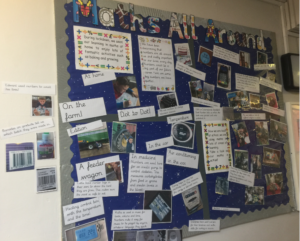
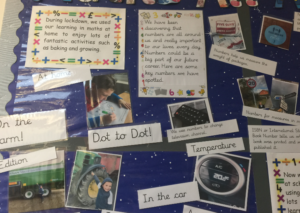
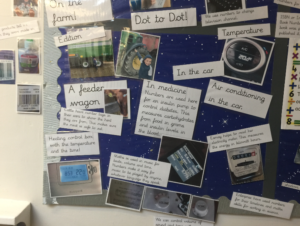
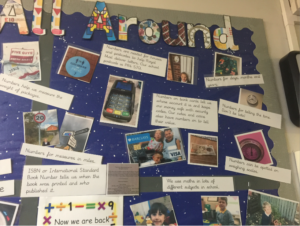
Maths Homework at Hoole St Michael:
To support our focus on fluency of skills, our homework across school is designed to foster this.
Each week children will be set:
- Numbots for our Year 1 children to encourage a recall of number facts. We also use this further up school for learning support if needed.
- T T Rockstars from Year 2 and up. Each class has an interactive display to encourage speed of recall.
- Year 5 and 6 will have an activity linked to their learning in maths the previous week to complete at home.
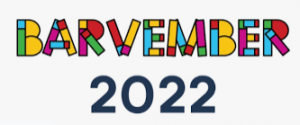
This November marks the start of our popular bar modelling month in school. Bar models are a great tool for us to be able to solve problems independently. Each day in November we will be solving a series of problems using bar modelling. We are aiming to win a champion bar model kit care of White Rose Maths. Watch this space for some photos of bar modelling in action. We support this using cuisenaire rods as a practical tool to help understand number.







